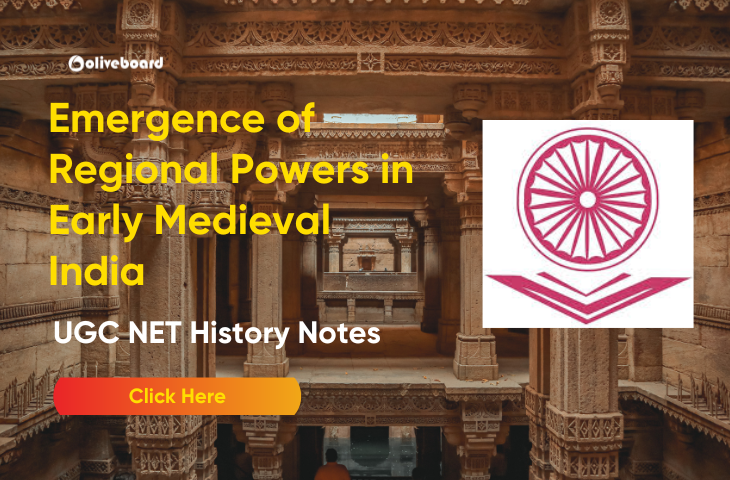Religious and philosophical ideas have shaped human history, influencing cultures, societies, and individual lives. These concepts are deeply interwoven, offering distinct yet interconnected perspectives on the meaning of life, existence, and our relationship with the universe. Whether rooted in ancient traditions or modern debates, religious and philosophical ideas provide frameworks for understanding human nature, morality, and the cosmos.
In this article, we will explore the key religious and philosophical ideas, their interrelation, and how they have evolved over time. The focus will be on various schools of thought, their foundational principles, and their impact on modern society.
Understanding Religious Ideas
What Are Religious Ideas?
Religious ideas refer to the beliefs and practices that revolve around spirituality, divinity, and the sacred. These ideas are often based on sacred texts, rituals, and the teachings of religious leaders. Religions provide moral codes, laws, and guidelines on how individuals should live their lives, interact with others, and understand their relationship with a higher power or the universe.
Key Concepts in Religious Thought
- Faith: The belief in the unseen, typically in a higher power or divine being.
- Rituals: Sacred practices and ceremonies that help individuals connect with the divine.
- Morality: Religious ideas often include a moral framework, defining what is right and wrong.
- Afterlife: Many religions propose a view of life after death, offering hope, redemption, or punishment.
- Salvation: The idea of being saved from sin, suffering, or worldly attachments.
Major World Religions
Religious ideas vary significantly across cultures and religions. Below is an overview of some of the world’s major religions:
| Religion | Key Beliefs | Sacred Texts |
| Christianity | Belief in one God, Jesus Christ as the savior | Bible |
| Islam | Belief in Allah and Prophet Muhammad | Qur’an |
| Hinduism | Belief in karma, dharma, and moksha | Bhagavad Gita, Vedas |
| Buddhism | The Four Noble Truths and the Eightfold Path | Tripitaka |
| Judaism | Belief in one God, covenant with the Jewish people | Torah |
| Sikhism | Belief in one God, equality, and service | Guru Granth Sahib |
Exploring Philosophical Ideas
What Are Philosophical Ideas?
Philosophical ideas focus on fundamental questions about existence, knowledge, reason, ethics, and reality. Philosophy seeks to answer deep questions such as: What is the meaning of life? What is the nature of knowledge? How should we live? Unlike religious ideas, philosophical concepts often emphasize reason and logic, encouraging critical thinking and debate.
Key Areas of Philosophy
- Metaphysics: The study of the nature of reality, existence, and the universe. It asks questions like: What is the nature of being? Does the universe have a purpose?
- Epistemology: The theory of knowledge, focusing on the nature and limits of human understanding. It deals with questions such as: What can we know? How do we know what we know?
- Ethics: The branch of philosophy concerned with moral principles. It explores what is right or wrong, good or bad, and how humans should act.
- Logic: The study of reasoning and argumentation. Logic helps in distinguishing valid from invalid arguments and reasoning processes.
- Aesthetics: The philosophy of art, beauty, and taste. It examines questions like: What is beauty? What makes something artistic?
Major Schools of Philosophy
Below is a table outlining some of the most significant philosophical schools of thought and their core ideas:
| School of Thought | Key Ideas | Notable Philosophers |
| Stoicism | Emphasizes virtue, rationality, and self-control. | Zeno of Citium, Epictetus |
| Existentialism | Focuses on individual freedom, choice, and the meaning of life. | Jean-Paul Sartre, Søren Kierkegaard |
| Pragmatism | Belief that the truth of ideas lies in their practical consequences. | William James, John Dewey |
| Utilitarianism | The greatest good for the greatest number. | John Stuart Mill, Jeremy Bentham |
| Rationalism | Emphasizes reason as the source of knowledge. | René Descartes, Baruch Spinoza |
| Empiricism | Knowledge comes from sensory experience. | John Locke, David Hume |
Relationship Between Religious and Philosophical Ideas
Shared Themes
Despite their differences, religious and philosophical ideas often intersect, especially in the realms of ethics, metaphysics, and the search for meaning. For instance:
- Morality: Both religious and philosophical traditions address questions about right and wrong. Religious teachings often provide absolute moral rules, while philosophers may debate the foundations of these ethics, such as utilitarianism or Kantian deontology.
- Existence: Many religions and philosophical schools alike ponder the nature of existence, the purpose of life, and the cosmos. While religion might propose divine creation, philosophy may explore these ideas through metaphysical or existential inquiry.
- The Afterlife: Both religious and philosophical ideas frequently explore the notion of what happens after death. While religions provide divine answers, philosophers have developed theories like existentialism that focus on the meaning of life in the face of mortality.
Examples of Intersection
- Thomas Aquinas: A Catholic philosopher who merged Aristotelian philosophy with Christian theology, showing the compatibility of faith and reason.
- Buddhism and Philosophy: Buddhist ideas such as impermanence and the nature of suffering resonate with existentialist philosophy, which examines the absurdity and suffering inherent in human life.
Philosophical and Religious Ideas in Modern Context
The Role of Religion in Modern Society
Religious ideas continue to guide personal lives, provide a sense of community, and influence political ideologies around the world. However, in modern times, religion is often questioned, with many turning to secular philosophies for answers. The rise of humanism and atheism challenges traditional religious ideas, advocating for a morality based on human reason and shared values.
Philosophy in the 21st Century
Modern philosophy continues to tackle pressing questions about technology, artificial intelligence, and the future of humanity. Philosophers today grapple with the implications of scientific advancements, ethical dilemmas posed by new technologies, and the meaning of life in a rapidly changing world.
Conclusion
Religious and philosophical ideas are crucial to understanding human existence, guiding moral behavior, and answering fundamental questions about life, the universe, and everything in between. While religion often offers divine answers based on faith, philosophy provides a rational, critical framework for inquiry and understanding. Both are indispensable tools for exploring life’s mysteries and striving for meaning in our complex world.
Religious and Philosophical Ideas – FAQs
Ans. Religious and philosophical ideas explore fundamental questions about existence, ethics, and the divine.
Ans. These ideas shape moral values, cultural practices, and the way communities perceive the world and their purpose.
Ans. Religion often focuses on belief in the divine and spiritual practices, while philosophy examines reason and human understanding of existence.
Ans. Yes, many individuals blend both to find answers to existential questions, with some philosophies aligning with religious teachings.
Ans. They provide frameworks for understanding life, morality, and the universe, guiding personal and societal decisions.
- Ancient History of India – UGC NET History Notes

- Emergence of Regional Powers in Early Medieval India- UGC NET History Notes

- Emergence of Heterodox Sects – UGC NET History Notes

- UGC NET History Previous Year Question Paper, PDF Download

- Sangam Literature – UGC NET History Notes

- Mauryan Art and Architecture – UGC NET History Notes


Hello there! I’m a dedicated Government Job aspirant turned passionate writer & content marketer. My blogs are a one-stop destination for accurate and comprehensive information on exams like Regulatory Bodies, Banking, SSC, State PSCs, and more. I’m on a mission to provide you with all the details you need, conveniently in one place. When I’m not writing and marketing, you’ll find me happily experimenting in the kitchen, cooking up delightful treats. Join me on this journey of knowledge and flavors!
